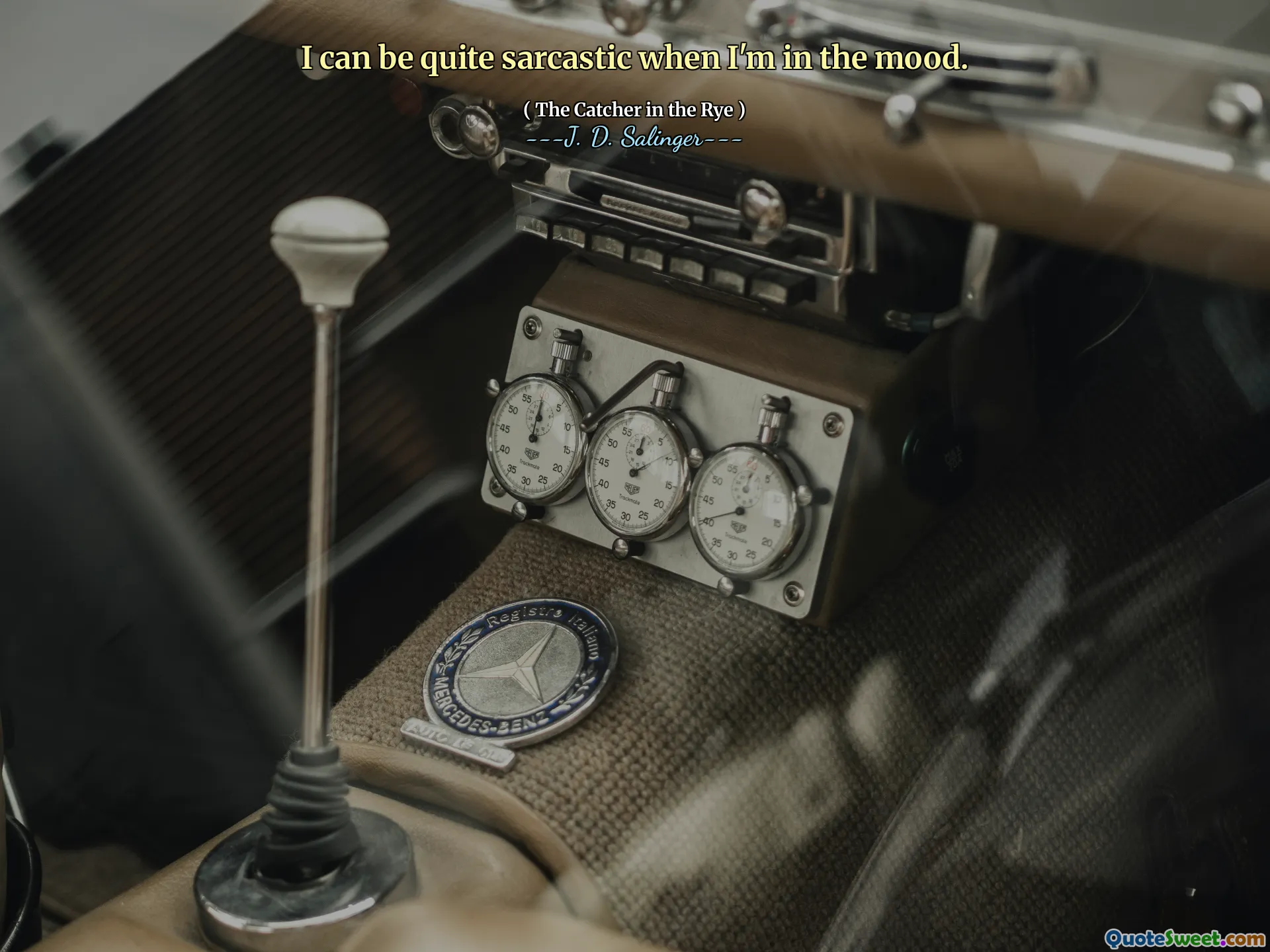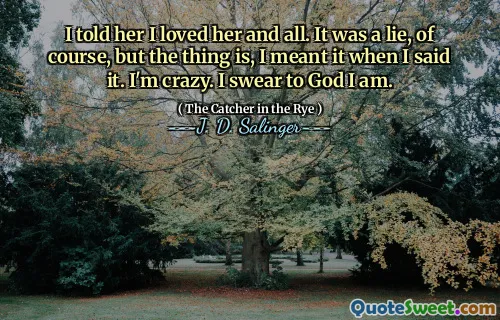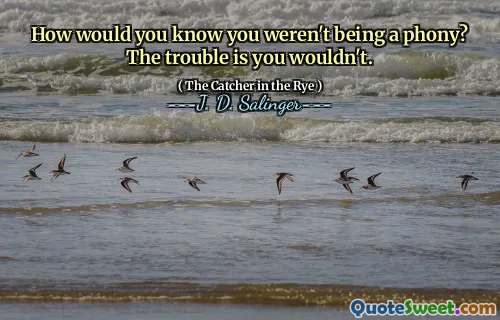
I can be quite sarcastic when I'm in the mood.
Sarcasm is a nuanced form of communication that often masks deeper feelings or frustrations with humor or irony. When someone openly admits to using sarcasm depending on their mood, it reveals an awareness of their emotional state and how it influences their interactions. This acknowledgment can serve as a self-awareness tool, allowing others to understand that their sarcasm isn't solely meant to offend but is also a reflection of the person's current mindset or attitude. The use of sarcasm can be both a defense mechanism and a playful gesture, depending on context and intent. In social settings, it can serve to bond through shared humor, yet it might also create misunderstandings or feelings of alienation if not recognized or appreciated by others. Reflecting on this, one might consider how mood influences our manner of expression—are we more likely to be genuine or to hide behind irony when we're feeling uncertain or stressed? It also prompts consideration about authenticity — is sarcasm a form of honesty delivered with a twist, or a shield that conceals true feelings? Ultimately, recognizing the variability in how and when we use sarcasm can foster better communication, empathy, and patience among individuals, especially in situations where tone and intention are critical for understanding.










